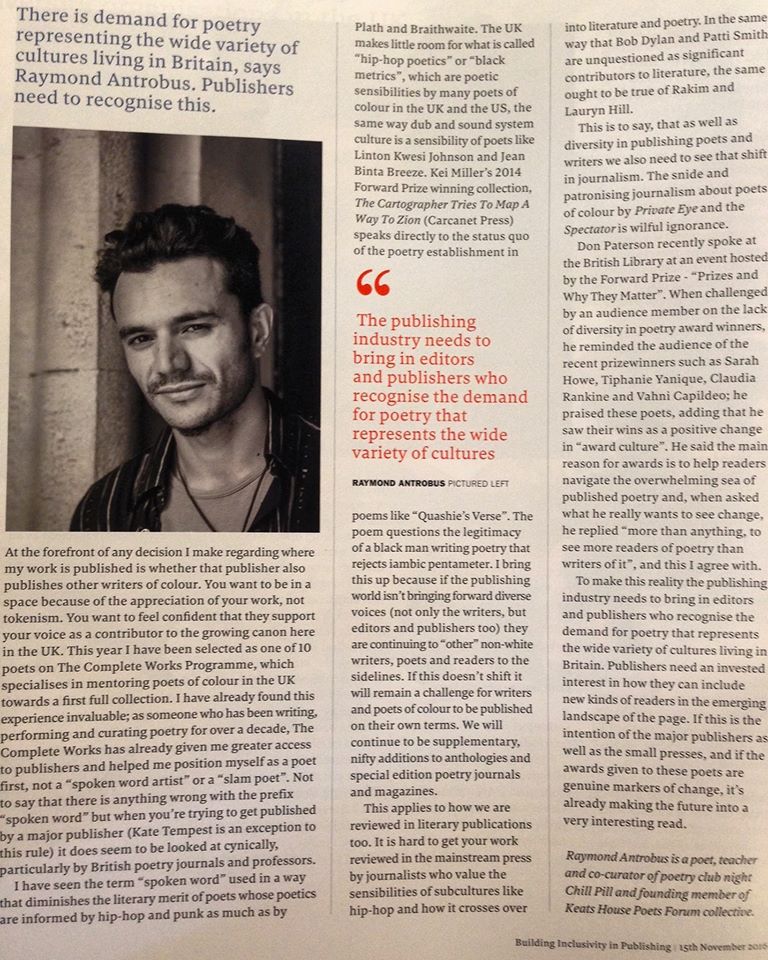I was struck by something she had said off the cuff in the lecture when someone in the audience asked her a question about the “canonised Caribbean voice”. “I blame Derek Walcott for so much, he’s part of a problem” she said, laughing, “but I won’t get into that”. Walcott is the most internationally recognised Caribbean poet. He writes mainly in sonnets and metered forms. A deep appreciation of Walcott’s poetry relies on an education in European “high culture” (from Dutch painters to Greek mythology). A fellow poet and friend of mine once called Walcott “a black example of white excellence”. I understood the point but disagreed.
If you read Walcott’s first published poems in 1948 (he was prodigal poet even as a teenager) up to his last 2013 collection; White Egrets, he has been loyal to the poetic sensibilities of the Caribbean.
“I seek / as climate seeks its style, to write / verse crisp as sand, clear as sunlight / cold as the curled wave, ordinary / as a tumbler of island water”
Islands is a love poem published in 1965 and is dedicated to his second wife, but it also reveals how life on a Caribbean island (Saint Lucia) has an atmosphere we can capture with the ear. His verse evokes all the hard sounds (cold, curled, crisp etc) of a difficult but atmospheric Caribbean history. To call this a “black example of white excellence” is lazy and simplistic.
I tried to read Walcott when I first started writing poetry. I was 18 and found his verse cold and impenetrable. It felt like reading sheet music for an instrument I couldn’t play. My appreciation of Walcott came when I was teaching a precocious class of year 10 English Literature students (of mainly second generation African, Caribbean and Asian backgrounds) preparing for their GCSE’s. I showed them the poem ‘Sixty Years After’. It’s still one of the most memorable classroom experiences I’ve had. A bilingual student recognised the French word “Vieuxford”, which is a place in Saint Lucia but the student also explained that it meant “old fort”. Also the significance of the poem taking place in a “Virgin lounge” while Walcott is wheelchair bound and “hating time” when he see’s a woman he remembered from the “fire” of his “young life”. He leaves us with an image of approaching death as “silent knives” entering both, him and the woman in their fertile old age. It was this class that woke me to Walcott’s mastery. However, using the same poem with a less receptive class, Walcott’s “cold” verse left them fidgety (one student threw a piece of paper across the room halfway through the reading).
Walcott’s poetry is not entry level. On one hand he does represent an art form that has a history of being perceived as elite, (it’s important to note I’m talking about his poetry, not the man himself). But on the other hand, Shridath Ramphal, chairman of the ‘West Indian Commission’ speaks in a report on the views of people living in former British colonies about Walcott’s most popular work, ‘Omeros’ as an epic that traces the history of “the diverse people of scattered islands and presented the history of the Caribbean with an identity recognisable to itself and the wider world”.




